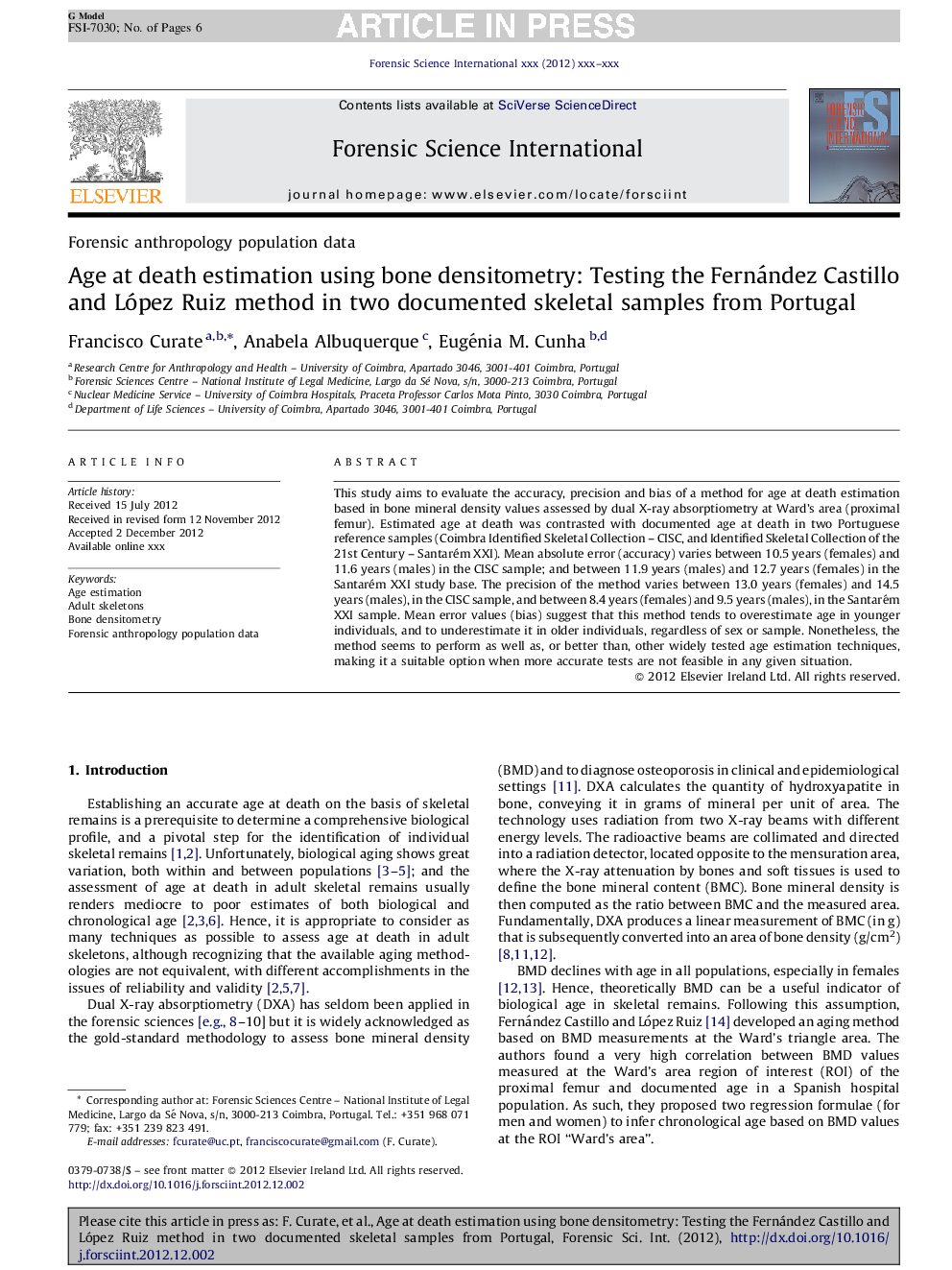| Article ID | Journal | Published Year | Pages | File Type |
|---|---|---|---|---|
| 95725 | Forensic Science International | 2013 | 6 Pages |
Abstract
This study aims to evaluate the accuracy, precision and bias of a method for age at death estimation based in bone mineral density values assessed by dual X-ray absorptiometry at Ward's area (proximal femur). Estimated age at death was contrasted with documented age at death in two Portuguese reference samples (Coimbra Identified Skeletal Collection - CISC, and Identified Skeletal Collection of the 21st Century - Santarém XXI). Mean absolute error (accuracy) varies between 10.5 years (females) and 11.6 years (males) in the CISC sample; and between 11.9 years (males) and 12.7 years (females) in the Santarém XXI study base. The precision of the method varies between 13.0 years (females) and 14.5 years (males), in the CISC sample, and between 8.4 years (females) and 9.5 years (males), in the Santarém XXI sample. Mean error values (bias) suggest that this method tends to overestimate age in younger individuals, and to underestimate it in older individuals, regardless of sex or sample. Nonetheless, the method seems to perform as well as, or better than, other widely tested age estimation techniques, making it a suitable option when more accurate tests are not feasible in any given situation.
Related Topics
Physical Sciences and Engineering
Chemistry
Analytical Chemistry
Authors
Francisco Curate, Anabela Albuquerque, Eugénia M. Cunha,
